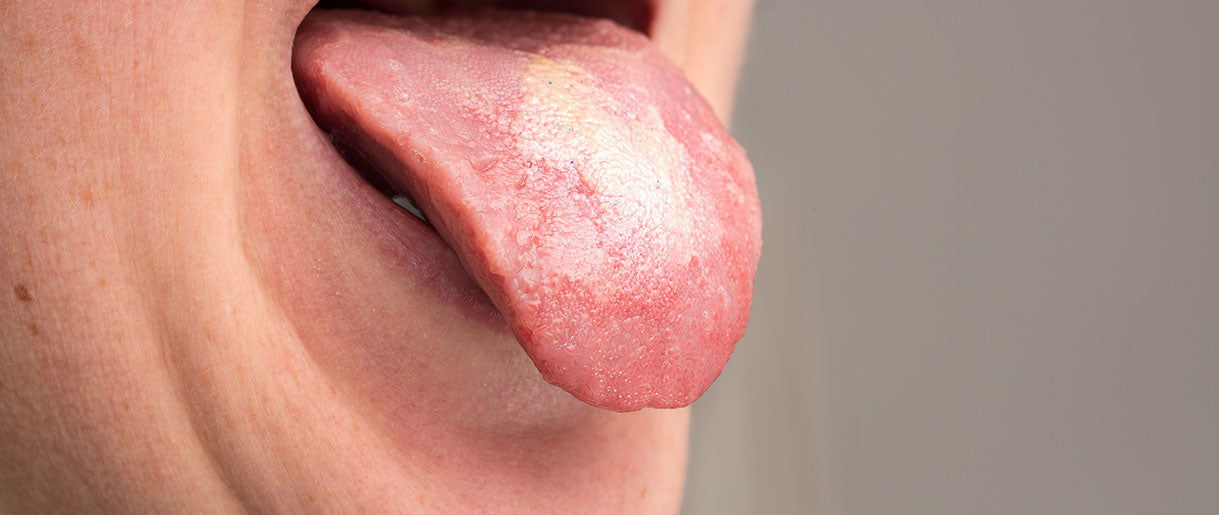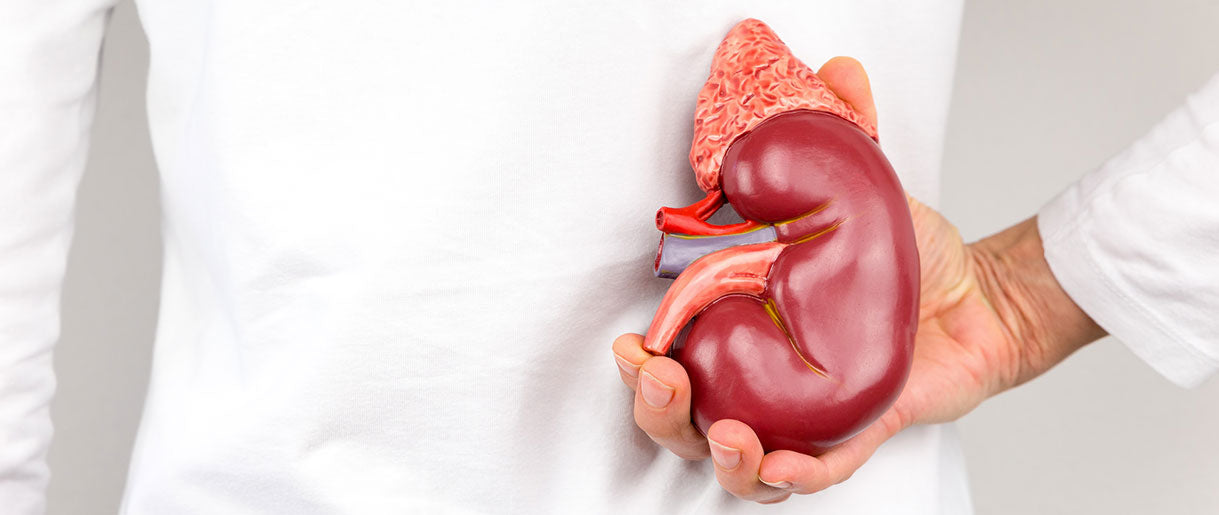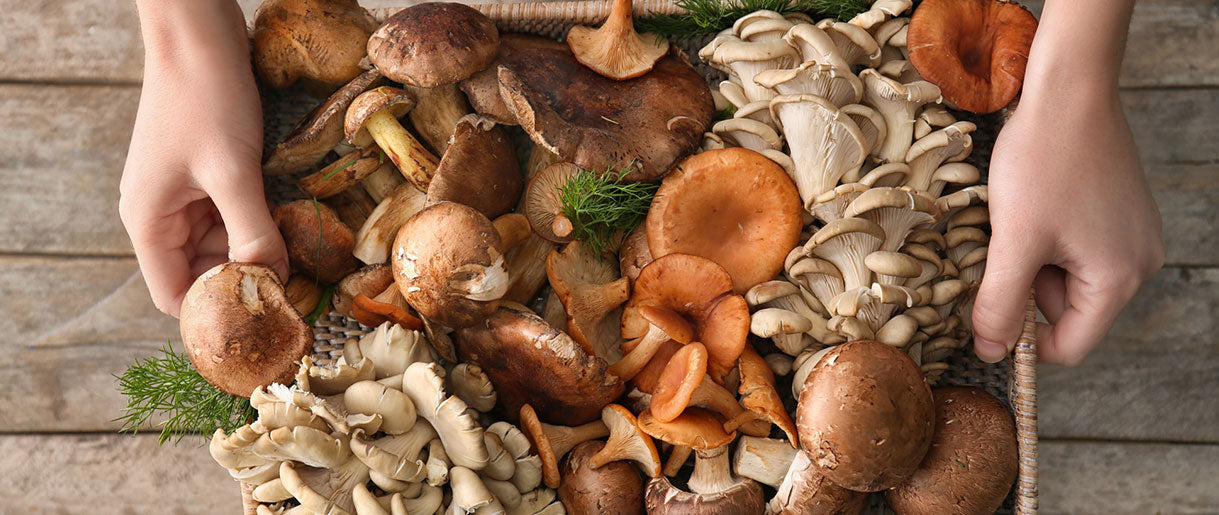When it comes to edible fungi, the humble mushroom reigns supreme. This popular ingredient, found in many dishes worldwide, is more than just a delightful addition to your meals. It's a powerhouse of nutrition, offering various health benefits, especially for women.
Mushrooms offer numerous benefits for women, making them valuable to a balanced diet. They contain essential nutrients like vitamins B and D, selenium, and fiber. Mushrooms can enhance the immune system, potentially reducing the risk of diseases. Their high fiber content, low calories, and fat can support healthy weight management.
Mushrooms also contain Vitamin D, which contributes to bone health, a crucial aspect for women, particularly post-menopause. Some studies suggest they might even support heart health by lowering 'bad' cholesterol. Additionally, antioxidants found in mushrooms contribute to skin health, providing a natural method for skin care.
Moreover, certain types of mushrooms, like Lion's Mane, may enhance cognitive function, potentially supporting women's mental health. Incorporating mushrooms in moderation into your diet can reap these health benefits. However, always remember to cook them thoroughly to eliminate potential toxins.
In this article, we will explore these benefits in more detail, diving into the nutritional content of mushrooms, their potential applications, and how you can incorporate them into your diet. We'll also discuss any potential risks or side effects you must know when eating mushrooms. Whether you're a long-time fungi fan or just curious about these nutrient-dense delights, this comprehensive guide will provide valuable insights.
A Deep Dive into Women's Unique Nutritional Needs

Regarding overall health, women have unique nutritional needs at different stages of their lives. This is primarily due to the various physiological changes that a woman goes through, such as menstrual cycles, pregnancy, breastfeeding, and menopause. Meeting these nutritional needs can support healthy aging, boost cellular energy, and promote overall women's well-being.
For example, iron is essential to replenish what is lost during menstrual cycles, particularly for menstruating women. On the other hand, adequate calcium and vitamin D intake is vital to maintain bone health, especially in postmenopausal women. Additionally, foods rich in Vitamin C can enhance iron absorption, further contributing to a woman's overall health.
Functional Foods: The Cornerstone of a Woman's Diet
Functional foods play a critical role in a woman's life by offering potential health benefits beyond basic nutrition. These foods have a potentially positive effect on health beyond providing essential vitamins and minerals. They can promote health, help prevent disease, and support healthy aging.
A well-balanced diet for women should include a range of functional foods. These foods are nutrient-dense and have many compounds that contribute to health. For example, they may contain antioxidants, which can help combat oxidative stress in the body, or probiotics, which support gut health.
Mushrooms are a functional food that has been gaining attention for their rich nutritional profile and potential health benefits. They offer a wide range of essential vitamins and minerals, dietary fiber, and powerful antioxidants, making them an excellent addition to a woman's diet. We'll explore these mushroom benefits in more detail in the following sections. In doing so, we'll unveil how this humble fungus can contribute to women's well-being and overall health.
Demystifying the World of Mushrooms

Mushrooms are a form of fungi with a complex life cycle and are classified as a separate kingdom in biology, distinct from plants and animals. There are thousands of types of mushrooms, many of which are edible and quite nutritious.
While some are everyday culinary delights, a particular category of mushrooms, often called medicinal mushrooms, are recognized for their potential health benefits. These functional mushrooms have been used for thousands of years, particularly in traditional Chinese medicine.
A Tour of the Functional Mushroom Family
Among the pantheon of medicinal mushrooms, the reishi mushroom stands out for its potential health-boosting properties. Reishi mushrooms have a long history of use in Asia, and ongoing research explores their potential benefits. Similarly, Chaga mushrooms are valued for their rich antioxidant content, while maitake mushrooms are touted for their potential immune-boosting benefits.
The shiitake mushroom, another functional fungi, is a culinary delight revered for its potential health properties. Cordyceps Sinensis and militaris, although not a traditional mushroom in the culinary sense, is yet another medicinal fungus that has gained attention in recent years.
Not to be left out, Lion's mane mushroom is a unique, shaggy white fungus praised for its potential cognitive health benefits. Each of these medicinal mushrooms brings something unique to the table, contributing to their growing popularity.
Mushrooms: A Nutritional Powerhouse
When it comes to nutrition, mushrooms pack a powerful punch. They are low in calories yet high in fiber and protein. Regarding vitamins, mushrooms offer a generous dose of vitamin D crucial for bone health. Functional mushrooms also contain the B-vitamins, such as riboflavin, niacin, and pantothenic acid, which are crucial for the body's energy production and other metabolic processes.
Many mushrooms, including the reishi mushroom, chaga mushroom, and maitake mushroom, also offer a rich source of antioxidants, which can help protect the body against damage from free radicals and support overall health.
In the world of medicinal mushrooms, these adaptogenic mushrooms, like reishi, chaga, and others, are believed to help the body resist various types of stress. These functional mushrooms, including Lion's mane mushrooms and others, hold great potential for enriching our diets and contributing to a balanced lifestyle.
As we delve deeper into this topic, we will explore how these potent fungi can play a role in women's health, highlighting their specific benefits.
Harnessing the Power of Mushrooms for Women's Health
Mushrooms are a cornerstone of traditional medicine and a rising star in modern wellness routines. The unique benefits of these fungi have been revered for centuries, and today, research suggests they hold many health benefits for women. From hormonal balance to skin health, let's explore these mushroom benefits in more detail.
1. Balancing Act: Mushrooms and Hormonal Health

Medicinal mushrooms, like the revered Reishi mushrooms (Ganoderma Lucidum), are known for their potential to balance hormones.
They are said to help the body adapt to stress, which can, in turn, support hormonal health. This is particularly relevant to women's health, as hormonal imbalances can lead to symptoms like mood swings, sleep disturbance, and even changes in the menstrual cycle.
For instance, research shows that(1) Reishi mushroom supplements, especially the Reishi mushroom extract, can help manage occasional stress, aiding in hormonal balance.
Interesting Read: See how Reishi promotes hormonal balance in women.
2. Immune Warriors: Mushrooms as Immune Supporters

Their potential role in immune support is next on the list of mushroom benefits for women. Functional mushrooms like Shiitake and Chaga are rich in beta-glucans, a bioactive compound known for their immune-boosting properties.
Incorporating a daily dose of these mushrooms into your wellness routine could boost your immune system. This is especially important for women, as a robust immune system can help fend off common illnesses and support the body's defenses against chronic disease.
3. Strong Bones: How Mushrooms Contribute to Bone Health

Vitamin D is crucial for bone health, and interestingly, certain mushroom species like maitake and white button can provide this essential nutrient. This is particularly significant for women, especially menopausal women, who are at a higher risk of osteoporosis.
Incorporating these functional mushrooms into your diet could therefore contribute to bone health, another testament to the broad range of mushroom benefits for women.
4. Shedding Pounds: Mushrooms and Weight Management

Mushrooms' role in weight management is often overlooked. These versatile fungi are low in calories and high in fiber, making them a filling food that can aid in weight control. The Chaga mushroom, for example, contains prebiotic fiber that supports gut health and can contribute to feelings of fullness.
Weight management is crucial to women's health and wellness, and by incorporating mushrooms into a balanced diet, many women may find it easier to maintain a healthy weight.
5. Heart of the Matter: Mushrooms and Cardiovascular Health

Certain functional mushrooms like Reishi and Cordyceps mushrooms are known to support heart health(2). They contain certain beneficial compounds that research suggests may help maintain healthy blood pressure and blood flow.
Considering cardiovascular health is crucial for women, these mushroom benefits can significantly affect their wellness routines. However, it's essential to note that maintaining heart health should also include regular exercise, a balanced diet, and control of other factors like smoking and alcohol consumption.
6. Radiant Skin: Mushrooms and Skin Health

Finally, let's touch on another compelling aspect of mushroom benefits for women: skin health. Some mushrooms, including Reishi mushrooms and Shiitake mushrooms, are rich in antioxidants and bioactive compounds, which are beneficial for skin health.
Many women are interested in natural skincare methods, and incorporating mushrooms, either through diet or topical products, could be a beneficial addition to their skincare routines. Whether ingesting a whole mushroom or using products with Chaga or Reishi extract, these mushrooms offer a natural approach to maintaining healthy and radiant skin.
Interesting Read: See how Chaga mushroom improves skin health.
The Mind-Body Connection: Mushrooms and Women's Mental Health
The potential of mushrooms to enhance brain health is a remarkable aspect of their benefits. Whether it's their purported ability to support cognitive function, help manage stress, or their potential role in boosting mood, medicinal mushrooms offer various benefits for women's mental health.
7. Mind Boosters: Mushrooms and Cognitive Function

One standout in the world of functional mushrooms is the Lion's Mane mushroom. Known for its unique ability to stimulate the production of the nerve growth factor, this mushroom has been associated with improved cognitive health. Research suggests that(3) the Lion's Mane mushroom might even have potential benefits in the prevention and treatment of neurodegenerative diseases like Alzheimer's disease.
The link between mental health and women's well-being cannot be understated. As such, mushrooms that support cognitive function, like Lion's Mane, can play a pivotal role in women's health. While more research is needed to explore these mushroom benefits for women fully, the potential for improved brain health is promising.
8. Adaptogens to the Rescue: Mushrooms and Stress Relief

In the world of medicinal mushrooms, adaptogenic mushrooms like Reishi and Cordyceps are known for their potential stress-relieving properties. The term "adaptogen" refers to their purported ability to help the body adapt to stress, which can, in turn, support the immune system and overall wellness.
For instance, the Cordyceps mushroom, known to improve lung capacity and potentially alleviate decreased libido, is also considered a natural stress reliever. This could be particularly beneficial for women experiencing high-stress situations or symptoms like hot flashes.
Mushroom Magic: Incorporating Mushrooms into a Woman's Diet

Embracing the potential health benefits of mushrooms begins with understanding how to incorporate them into daily meals. Here are some tips, recipes, and considerations to make these potent fungi a regular part of your wellness routine.
Mushrooms in Every Meal: Tips and Tricks
The versatility of mushrooms makes them easy to include in your diet. You can add them to soups, stir-fries, and salads or use them as a meat substitute in certain dishes. With its meaty texture and seafood-like flavor, Lion's Mane is an excellent addition to pasta dishes and stir-fries.
For those interested in the potential benefits without the intense taste of medicinal mushrooms, consider adding them in powder form to your meals or drinks. Powdered mushrooms can be stirred into smoothies, mixed into coffee or tea, or even added to baked goods.
Savory and Sweet: Mushroom Recipes to Try
Lion's Mane Mushroom Pasta
Sauté Lion's mane mushrooms with garlic, olive oil, and your favorite herbs. Add them to cooked pasta, sprinkle with parmesan, and voila! You've got a delicious, brain-boosting meal.
Mushroom Smoothie
For a quick immunity boost, blend a spoonful of powdered medicinal mushrooms with banana, spinach, almond milk, and a touch of honey for sweetness. This nutrient-dense smoothie can help start your day on a healthy note.
Mushroom Tea
Brew a soothing cup of mushroom tea using Lion's mane mushroom powder. Add a touch of honey and lemon for flavor. This calming beverage could potentially help manage mood swings and support cognitive health.
Striking a Balance: Responsible Mushroom Consumption
While mushrooms offer potential benefits like helping to manage mood swings, supporting cognitive health, and potentially helping to maintain blood pressure and blood sugar levels, consuming them in a balanced manner is essential.
As with any food, variety is vital. Incorporate a mix of different mushrooms into your diet, and remember that they are part of a more extensive wellness routine. Mushrooms can offer unique health benefits, but they should be consumed as part of a balanced diet that includes a variety of fruits, vegetables, lean proteins, and whole grains.
Maneuvering the Mushroom World: Potential Risks and Side Effects

While mushrooms are generally considered safe and beneficial, they can pose particular risks or cause side effects in some individuals. Understanding these potential issues and how they may particularly affect women is essential.
Mushrooms: Not Always a Magic Bullet
First and foremost, not all mushrooms are created equal. While medicinal mushrooms like Lion's Mane, Reishi, or Cordyceps are known for their potential health benefits, certain wild mushrooms are poisonous and can cause serious health problems if consumed.
In addition, even beneficial mushrooms can cause side effects in some people. Common side effects include digestive upset, dry mouth, and dizziness. Some individuals may also be allergic to certain types of mushrooms, experiencing symptoms such as rashes, itching, or swelling.
Mushroom supplements, especially those made from mushroom extracts, can be potent and should be used as directed. Overdosing on these supplements can lead to adverse effects, such as nausea or gastrointestinal discomfort.
It's always recommended to start with a smaller dose when trying a new mushroom supplement and increase gradually as your body adjusts.
A Woman's Perspective: Specific Risks for Women
While mushrooms can offer many benefits for women, there are also specific risks. For example, pregnant or breastfeeding women should exercise caution when consuming mushroom supplements. There's not enough research to confirm the safety of these supplements during pregnancy or breastfeeding, so it's always best to consult a healthcare provider.
Some mushrooms may also interact with certain medications, such as anticoagulants or medications for blood pressure. Women on any long-term medications should speak to their doctor before adding mushroom supplements to their diet.
Finally, women with autoimmune diseases should be cautious as well. Some medicinal mushrooms stimulate the immune system, which could potentially cause problems for individuals with conditions like lupus or rheumatoid arthritis.
Mushroom Benefits For Women Video
FAQs About Mushroom Benefits for Women
What Kind Of Mushroom Is Good For Menopause?
Many mushrooms can be beneficial during menopause due to their rich nutrient content and potential hormone-regulating effects. Here are a few examples:
- Reishi Mushrooms: Often called the "mushroom of immortality," Reishi mushrooms boost the immune system and help manage stress, which can be beneficial during menopause when the immune system may be compromised due to hormonal fluctuations.
- Cordyceps: This fungus has been used in traditional Chinese medicine to enhance energy and reduce fatigue, which can be particularly beneficial for menopausal women experiencing low energy levels or chronic fatigue. Some research also suggests it may help balance hormones.
- Lion's Mane: Lion's Mane mushrooms are often lauded for their cognitive-enhancing properties. Lion's Mane may alleviate memory problems or cognitive decline accompanying menopause.
- Maitake: Maitake mushrooms are rich in antioxidants and can support overall immune health. They are also said to have adaptogenic properties, which can help the body adapt to stress, a common issue for many women during menopause.
Remember, while these mushrooms can offer potential benefits, they are not a substitute for medical treatment. If you're experiencing severe menopausal symptoms, it's essential to consult with a healthcare provider.
Is Mushroom Good For Conceiving?
Mushrooms can contribute to a healthy diet, an essential factor when trying to conceive. They are rich in crucial nutrients that are beneficial for reproductive health, including:
- Folic Acid (Folate): Some types of mushrooms, like shiitake, are a good source of folic acid, essential for preventing neural tube defects during pregnancy. Adequate folate intake is important even before conception.
- Antioxidants: Mushrooms contain antioxidants like selenium and vitamin C that help protect the body and the reproductive system from oxidative stress, potentially improving fertility.
- Vitamin D: Certain mushrooms, like maitake and chanterelles, are high in vitamin D when exposed to sunlight. Adequate vitamin D levels are associated with good reproductive health in both men and women.
- Dietary Fiber: The dietary fiber in mushrooms can help maintain a healthy body weight, which is crucial for fertility.
While including mushrooms in your diet can contribute to overall health and wellness, it's important to remember that they are just one piece of the puzzle. A balanced diet, regular exercise, healthy weight, and other lifestyle factors are also crucial for fertility.
Key Takeaways
The humble mushroom offers many health benefits that can contribute significantly to women's health and well-being. From providing essential vitamins and minerals, bolstering immunity, supporting bone health, aiding in weight management, promoting heart health, enhancing skin health, and potentially contributing to improved mental health, mushrooms have much to offer.
Remember that the type of mushroom also plays a critical role in the kind of benefit you might derive. Varieties like Reishi, Cordyceps, Lion's Mane, and Shiitake are especially notable for their medicinal and adaptogenic properties, and these can be particularly supportive for women at various stages of their lives.
As always, we're eager to hear from our readers. Have you experienced any significant benefits from including mushrooms in your diet? Or perhaps you have a favorite mushroom recipe to share? Leave a comment below and join the conversation. We'd love to hear your insights and experiences!
References
- Evaluation of Antianxiety Potential of Four Ganoderma (Agaricomycetes) Species from India in Mice, (1)https://pubmed.ncbi.nlm.nih.gov/28008811/
- Mushroom Consumption and Cardiovascular Health: A Systematic Review, (2)https://pubmed.ncbi.nlm.nih.gov/33309597/
- Prevention of Early Alzheimer’s Disease by Erinacine A-Enriched Hericium erinaceus Mycelia Pilot Double-Blind Placebo-Controlled Study, (3)https://www.ncbi.nlm.nih.gov/pmc/articles/PMC7283924/










Let Us Know Your Comments